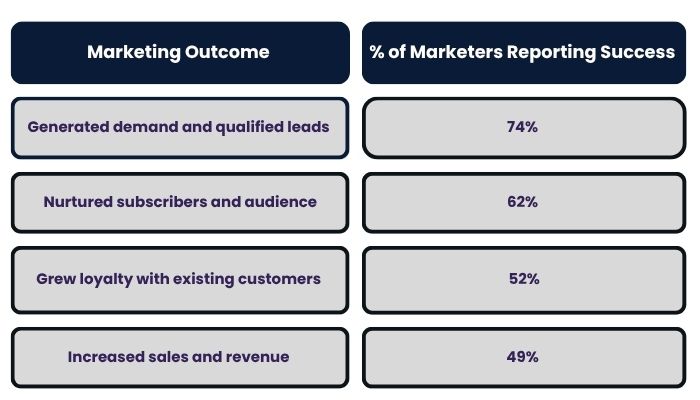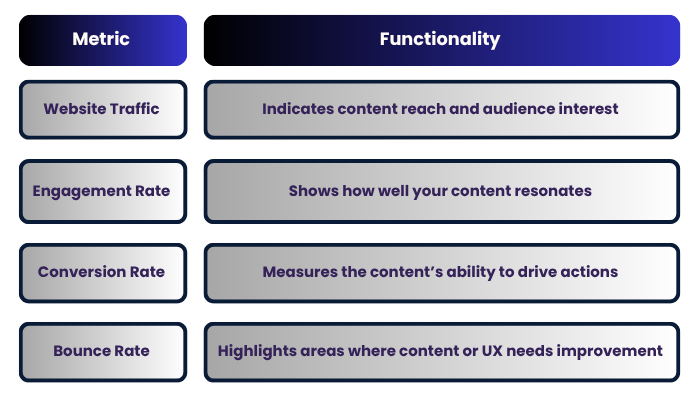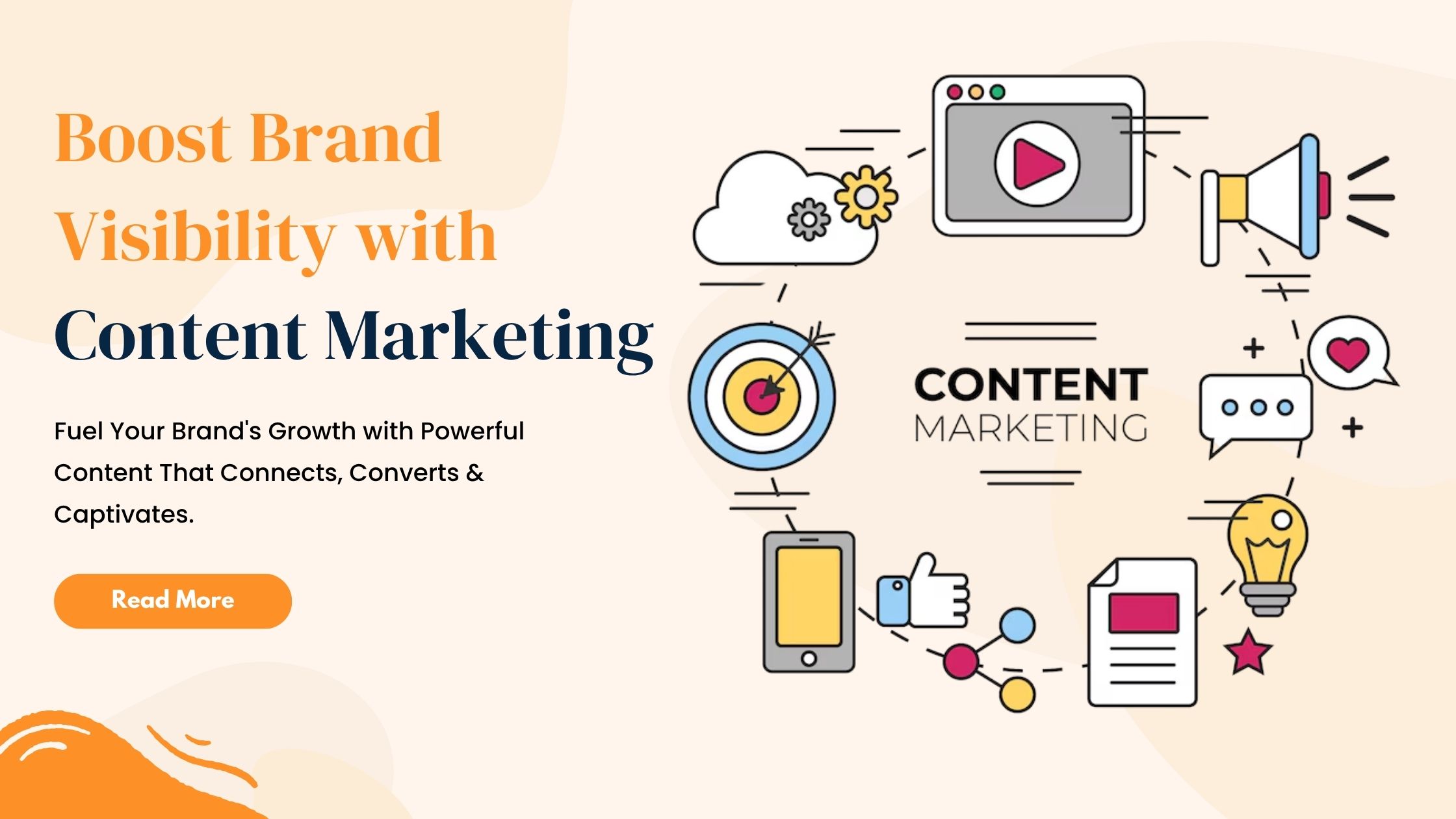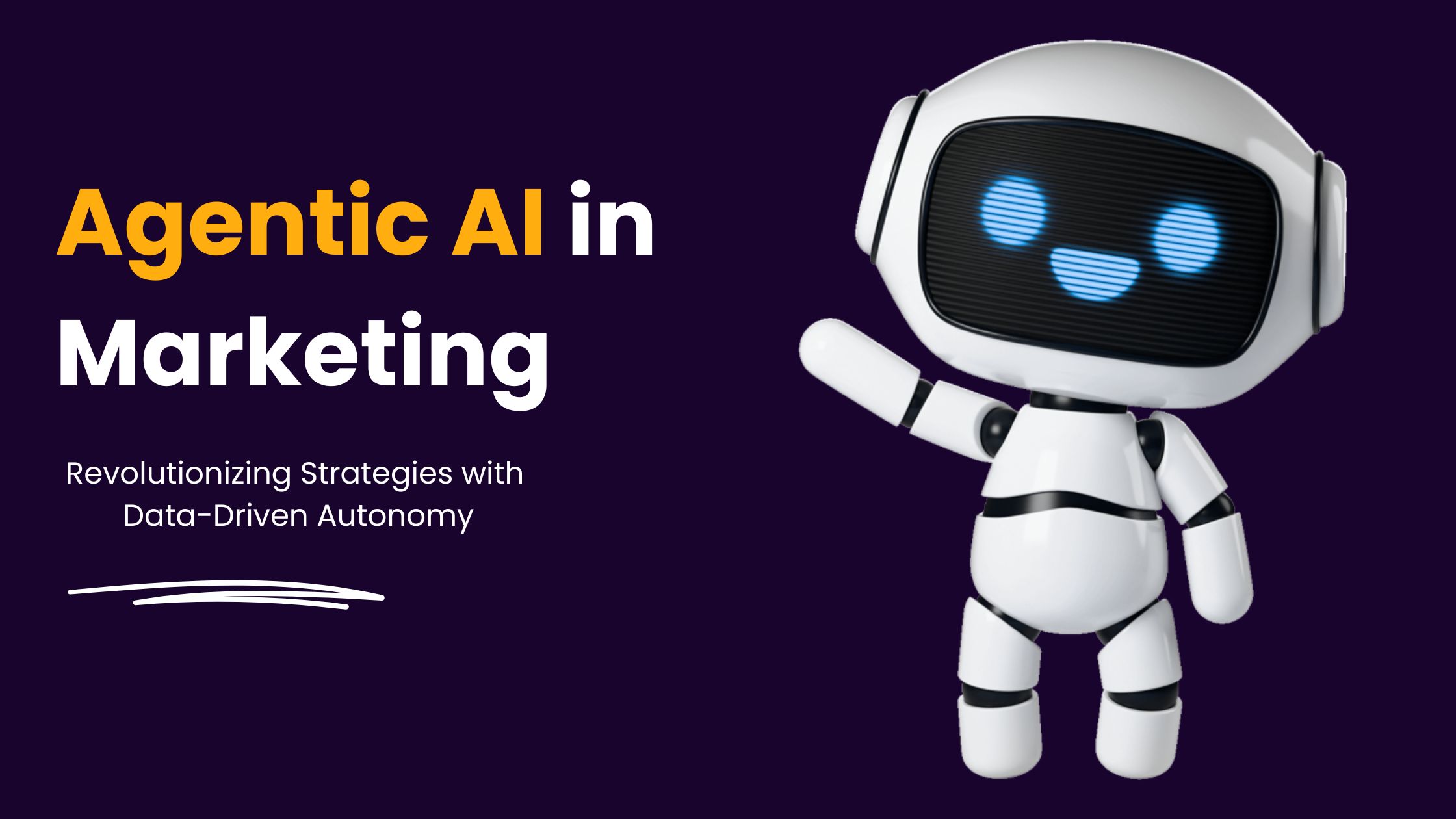People now take time to research before buying, as they are better informed than they were in the past. This powerful change in consumer behaviour has placed content marketing strategies at the centre stage in building brands. However, executing these strategies effectively demands a consistent, data-driven, and audience-focused approach — which is what a content marketing agency does best.
This blog discusses how agencies utilize targeted strategies to skyrocket visibility and offers a checklist to choose the right partner for measurable success.
Understanding the Importance of Content Marketing for Brand Visibility
Modern consumers actively seek information before making purchasing decisions. They want to engage with brands that provide value, address their concerns, and offer solutions. This is where content marketing takes center stage.
The Numbers Behind Content Marketing’s Growing Influence
Recent insights from the HubSpot 2025 Marketing Statistics, Trends & Data report highlight the growing reliance on content marketing strategies among businesses worldwide. Consider the following data points:

These numbers are far from incidental. They reflect a clear and ongoing evolution in consumer behavior. Content marketing meets this requirement by delivering consistent, high-quality tales that inform, educate, and engage.
Brands that invest in unique blogs, videos, whitepapers, and social media material increase their visibility and influence decision-making processes across the buyer’s journey.
How a Content Marketing Agency Boosts Visibility?
Strategic Content Planning and Execution
Brand visibility doesn’t happen by accident. It begins with a comprehensive, well-researched content strategy.
Audience Research: Agencies study customer demographics, tastes, pain points, and content consumption behaviors to shape messaging that resonates.
Content Calendar Development: Agencies produce editorial calendars that chart out content topics, formats, and dates of publication — keeping your brand top-of-mind and visible throughout the year.
Multi-Channel Distribution of Content: Premium content is provided across various channels, including blogs, social media, email newsletters, and video platforms, strengthening touchpoints and increasing chances of discovery.
At its core, this method guarantees that high-quality content is constantly delivered to the right audience at the right time.
Improving Search Engine Optimization (SEO)
SEO Strategies Include:
Keyword Optimization: Agencies identify high-impact keywords that your target audience utilizes precisely and strategically incorporate them into your content.
On-Page SEO: Optimizing headlines, meta descriptions, subheadings, and image alt text to make every piece of content search-friendly.
Content-Driven Link Building: Producing shareable, authoritative content that increases domain authority by attracting natural backlinks from reliable websites.
Local and Technical SEO Content: Crafting localized articles, landing pages, and FAQs to capture nearby searchers and address technical SEO needs through well-structured content.
Developing High-Quality Content
Ultimately, it’s the content that audiences remember and share. Content marketing agencies focus on producing diverse, high-caliber assets that attract, inform, and engage.
Key content types include:
- Web Page Content
- Blog Posts
- Infographics
- Videos
- E-books and Whitepapers
Consider collaborating with agencies that offer SEO services to optimize your website content for better search visibility.
Managing Social Media Platforms
Content marketing agencies manage your social media presence to ensure consistent and engaging interactions with your audience.
Core services include:
Content Scheduling: Publishing regular, timely content that keeps your brand active and visible.
Community Engagement Content: Responding with thoughtful, value-added content that fosters genuine connections.
Performance Analytics: Identifying what kinds of content generate the most interaction and optimizing future plans appropriately.
Influencer Collaborations and Guest Posting Opportunities
A content marketing agency frequently maintains positive relationships with reputable influencers, bloggers, and industry journals. By using these existing relationships, your brand will have faster access to relevant partnership possibilities.
Benefits of Influencer Partnerships:
Extended Reach: Influencers and established platforms introduce your brand to their engaged, loyal followers.
Enhanced Credibility: Endorsements from trusted voices boost brand authority.
Authentic Promotion: Content posted by influencers comes across as real and authentic, building audience trust.
Customizing Email Marketing Campaigns
Agencies create personalized, targeted campaigns to keep your audience informed and engaged.
Email Marketing Tactics:
Deliver Value: Post advice, insights, and stories that readers actually want to open and read.
Automated Workflows: Creating email sequences that nurture leads, recover abandoned carts, or onboard new subscribers.
A/B Testing: Ongoing testing of subject lines, content, and CTAs to that drive engagement.
Encouraging User-Generated Content (UGC)
Agencies create initiatives to spark audience participation. This approach transforms your customers into brand advocates, organically expanding your reach.

Content marketing companies initiate:
Hashtag Campaigns: Encouraging customers to share their experiences using brand hashtags.
Contests and Challenges: Use entertaining, interactive campaigns to incentivize content development and reinforce your brand strategy.
Customer Testimonials: Showcasing authentic customer stories to improve credibility.
Implementing Paid Content Promotions Strategically
Even the best content benefits from a strategic push. Content marketing agencies manage paid content distribution through:
Sponsored Posts and Content Ads: Amplifying blog posts, videos, and case studies to reach wider audiences.
Pay-Per-Click (PPC) Campaigns: Promoting high-value, conversion-focused content on search engines and social platforms.
Improvements Based on Analytics and Performance Tracking
Content marketing is an evolving process. Content services track key content metrics to refine strategies:

This data-driven approach ensures continuous improvement and maximizes ROI.
Choosing the Right Content Marketing Agency: A 5-Point Checklist
Selecting the right agency ensures your visibility goals are met. Follow this checklist to choose a partner that delivers results you expect:
- Evaluate Expertise and Experience: Assess the agency’s track record and industry knowledge. Confirm industry-specific experience and certifications for proof.
- Customized Strategy Development: Ensure they offer tailored strategies aligned with your brand goals.
- Evaluate Creativity and Content Quality: Check through their portfolio to determine content originality and quality.
- Check Case Studies and Client Testimonials: Look for evidence of successful campaigns and satisfied clients.
- Communication and Transparency: Prioritize agencies that maintain open and clear communication channels.
Conclusion
Content marketing goes beyond just creating content, it aims to establish worthwhile continuous interactions that connect with your audience. A content marketing agency brings the expertise, experience, and tools needed to help your company shine in the busy online world. This makes sure that your message resonates and leaves a long-lasting impression.
Woosper assists businesses like yours to boost brand recognition through clever, fact-based content marketing strategies. From SEO to social media and working with influencers, we use content to drive measurable growth. Get in touch with our specialists now to get started.
FAQ
What is the role of content marketing in brand awareness?
Content marketing boosts visibility by offering valuable information, building trust, and helping the company connect with potential buyers.
What are the advantages of content marketing?
Content marketing offers numerous benefits, including improved SEO, enhanced brand credibility, better customer engagement, higher lead generation, and more cost-effective results.
What is the role of content marketing in lead generation?
Content marketing nurtures prospects by providing useful content, encouraging them to interact with your business, and eventually converting them into qualified leads.
What is an SEO content strategist?
An SEO content strategist plans, creates, and optimizes content that improves organic search rankings and aligns with business objectives to attract relevant traffic.



